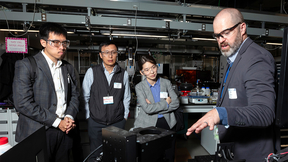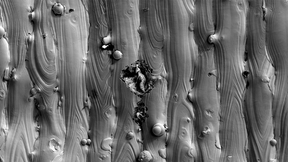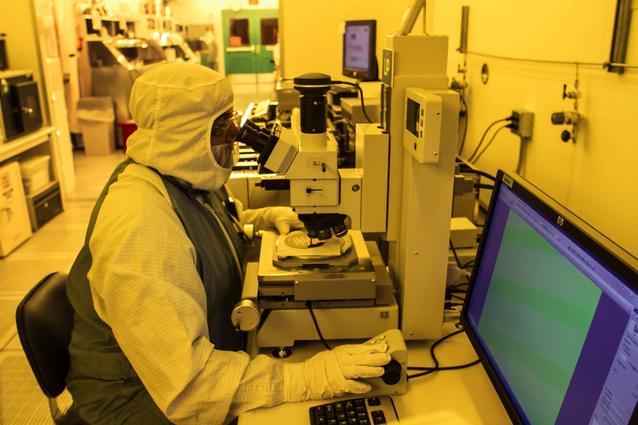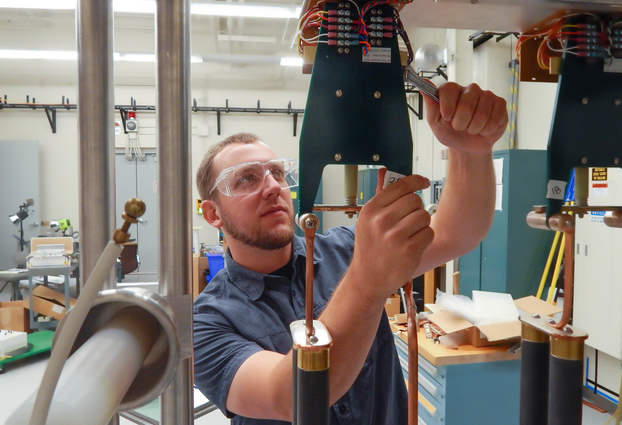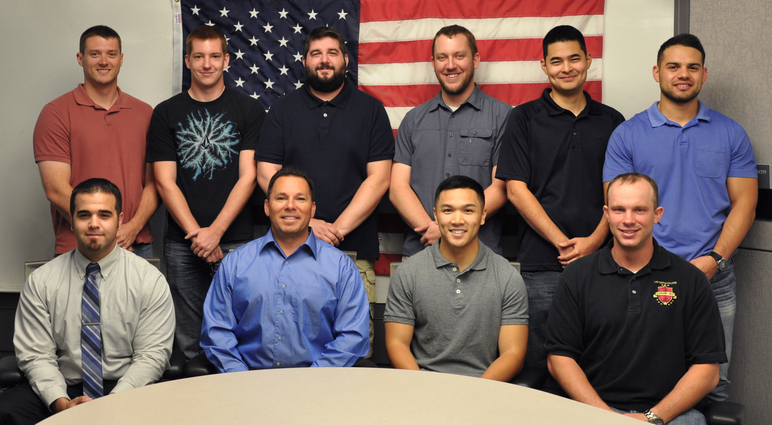Engineering program established for veterans
LIVERMORE, Calif. - Lawrence Livermore National Laboratory (LLNL), Alameda County Workforce Investment Board (WIB) and Las Positas College (LPC) recently established a 24-month academic program to provide technical education and hands-on training for veterans, officials recently announced.
The new Engineering Technology Program at Las Positas is designed to help veterans develop the skills and training needed for engineering technician careers, and establishes a pipeline of qualified candidates for LLNL and other Bay Area employers such as NASA and Sandia and Lawrence Berkeley national laboratories.
Up to 30 veterans are expected to enroll in the program when coursework begins at LPC in the fall. Some of them have started the summer internship portion of the program at Lawrence Livermore.
"This program is a win-win situation for both the veterans who have passionately served our nation and employers such as Lawrence Livermore who want to hire vets and need a pipeline of qualified technicians," said Beth McCormick, an LLNL Strategic Human Resources Management manager, who helped create the program.
Randy Pico,LLNLEngineering Directorate' s senior superintendent,said hewanted to create a strong local pathway for veterans interested in mechanical engineering technology that would include worksite activities, tours, job shadowing, on-site training, mentoring and learning activities.
"The ability for vets to participate in this type of industry cluster-specific training program will provide a meaningful role in the development of their academic skills and competencies as well as long-term partnerships with employers," said Pico, who also helped create the program.
The need for technicians has become critical for LLNL as well as other Bay Area employers, especially since many local community colleges had to reduce their two-year technical-degree programs because of state budget cuts. LLNL needs asignificant number of technicians to support the replacement of an estimated 200 vacancies over the next five years from retirements.
In response, LLNL, LPC, WIB and the nonprofit Growth Sector developed the curriculum needed for the Engineering Technology Program.Funding from WIB and Growth Sector's science, technology, engineering and math (STEM) development program, combined with a hands-on technical training at the Lab and LPC's large veteran population, made launching the Engineering Technology Program possible.
WIB plans and oversees local workforce investment programs, which include one-stop career centers, youth and adult programs, as well as other federal programs that specifically address high-growth industry workforce gaps.Growth Sector develops strategic approaches to bring together employers, community colleges, government and foundations to develop pathways to high-wage, high-growth jobs.
"The collaboration between industry experts and educators has created a program that meets the requirements of local industry's need," said Todd Steffan, the Veterans' First coordinator at Las Positas who helped develop the program. "In this case, it is more engineering technicians. Ultimately, we hope this program leads to good-paying careers for many of our returning veterans."
McCormick said the average age for veterans to attend college after active duty is 24. If they decide to go into a STEM field, they often need to start with the most basic math classes, which already puts them behind other students.
That's why Growth Sector developed an accelerated math curriculum coupled with tutoring. The Engineering Technology Program is designed in a cohort-style format, so vets have each other for support.
"This makes a big impact on helping veterans succeed," McCormick said.
Jeremy Taylor, an Army staff sergeant who served in Afghanistan, is enrolled in the program and spending this summer learning how to manufacture cooling arms and other custom-engineered parts for the National Ignition Facility (NIF).
"I really appreciate the opportunities the program has opened up for me," he said. "It has allowed me to acquire a new set of skills and see a career path I would have never considered before."
Steven Leahy, a Marine Corps corporal who served in Iraq, is doing computer modeling at the National Security Engineering Division's Pulsed Power Lab.
"I'm extremely grateful to be here," he said. "I moved from Montana exclusively to attend Las Positas after hearing they have an outstanding veterans' support program, but I never could have imagined getting an opportunity like this."
Contact
Kenneth K Ma[email protected]
925-423-7602
Related Links
Las Positas CollegeGrowth Sector
Alameda County Workforce Investment Board
Engineering Directorate
Engineering Technology Program application
Tags
VeteransEngineering
Science
Featured Articles
